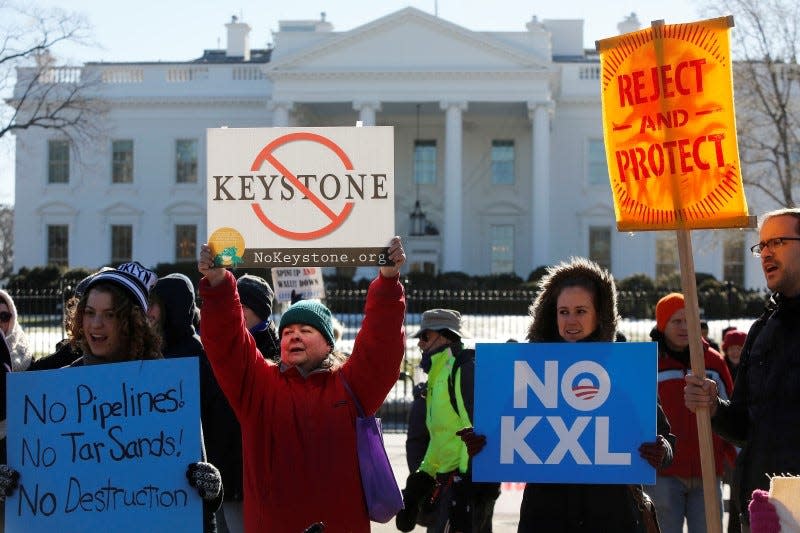The marketing failure that's going to kill us all

Save the whales. Stop the Keystone XL pipeline. Ban Arctic drilling.
Slogans like these have been plastered on bumper stickers and chanted at marches for years. But despite being succinct earworms, they've all failed to address one key question: Why? Why should the typical American — worried about holding on to their job, providing for their family, and a million mundane challenges — get invested in protecting the environment?
To prevent a climate catastrophe, activists say.
Because it's our moral responsibility as stewards of the planet, environmentalists argue.
But those reasons typically fall flat with the general public. Too often, issues that are critical to maintaining life on this planet, such as saving endangered species from extinction and blocking fossil-fuel development, get framed solely as ethical matters. Or worse, they get lost in a haze of confusing scientific jargon or grandiose calls to action.
Even after decades of scientific reports and widespread activism, nearly half of Americans in a Pew Research poll said they didn't view climate change as a major threat. And 56% said they thought that they, as individuals, were already doing enough — or even too much — to reduce the effects of climate change. It's that profound disconnect between perception and reality that's preventing us from taking the kind of urgent and sustained action necessary to prevent a planetwide catastrophe.
The problem isn't that there's a lack of scientific information or moral reasons to act. The problem comes down to ineffective marketing. To connect with the average person, environmental campaigns need to focus more on how helping the environment helps individuals.
Marketing, at its core, is about shaping perception. And while the complexity and scale of the climate crisis can be difficult to capture in a tagline, we need to draw on the profession's proven expertise at persuasion to help raise awareness, mobilize the public, and shift our national priorities.
It's not enough, marketing experts say, to emphasize that an issue is important. "Even great and important things don't often get the attention they need," Jonah Berger, an associate professor of marketing at the Wharton School of the University of Pennsylvania, said. "There are lots of things competing for people's attention. That's why we need to think about messaging." Translating the climate crisis into an effective marketing campaign, he said, means focusing not on the abstract importance of the issue but on the concrete needs of the audience.
Climate issues are often framed as a choice between selfishness and selflessness: Either you care about your money and your job, or you care about helping the planet. In this false dichotomy, it's clear where most people come down: In a recent Gallup poll of Americans, only 3% of respondents ranked the environment as the most important issue facing the country today, versus 34% who said the economy was most important. Average people, this seems to suggest, are more concerned about whether they will be able to afford a good life for their children than whether certain animals will be around in 30 years.
In reality, though, the economy and environment are intricately intertwined. Increasing the energy efficiency of your home, for example, is a clear way to reduce your utility bills. But that's not how environmental issues are usually marketed.
Consider the Keystone XL pipeline, which was designed to bring oil sands from Canada into the US. The political left opposed the pipeline on environmental grounds, including its perpetuation of fossil-fuel reliance and the potential for oil spills. The right supported the pipeline on economic grounds, claiming that its construction would generate over 100,000 jobs.

But the battle over the pipeline should never have been framed as a choice between the environment and the economy. Better marketing would have emphasized the very real and immediate cost of climate change — which the pipeline may have exacerbated — as well as all the jobs that could be created by focusing on clean energy, not just fossil fuels. (That's the message the Biden administration adopted to promote the Inflation Reduction Act, touting the more than 170,000 estimated jobs it created in one year.)
Environmental advocates still struggle to make seemingly far-off issues a kitchen-table concern for Americans. Take oil drilling in Alaska, for example. When campaigns to ban Arctic drilling focus on protecting local ecosystems, that can leave people who live far from the Arctic wondering why the issue matters to them. Fortunately, that messaging is starting to change.

 Yahoo Autos
Yahoo Autos 